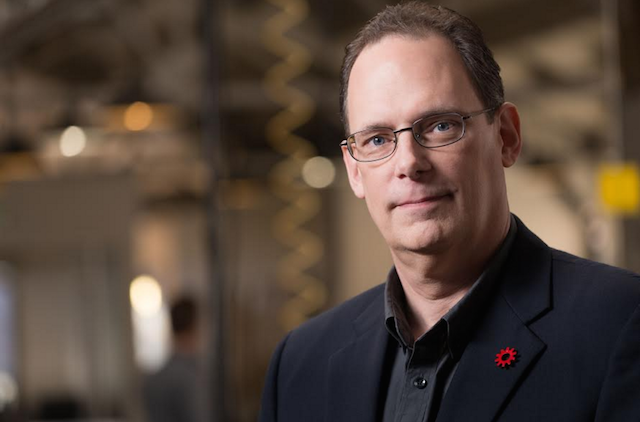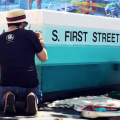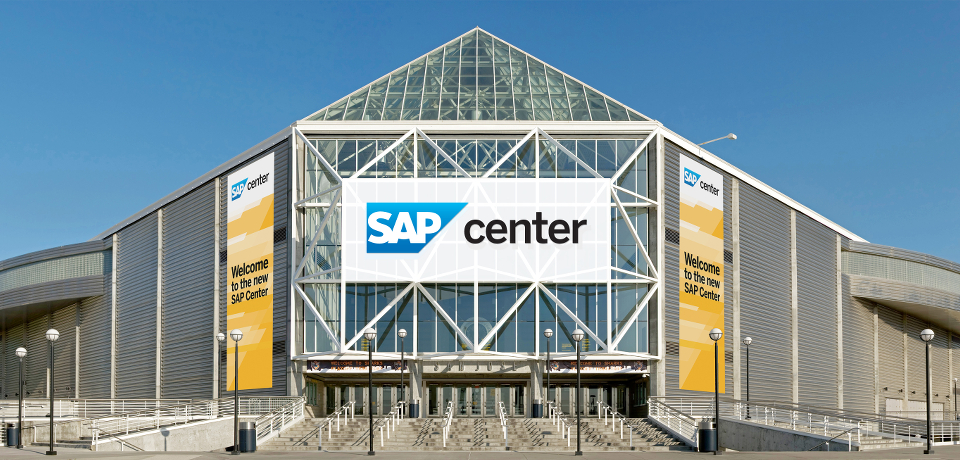It’s no secret Silicon Valley is home to innovative and creative minds. For Jim Newton, founder and chairman of TechShop, Inc., having a place for those minds to create the next big thing is the top priority. TechShop is a membership-based workshop and studio stocked with manufacturing and software equipment for inventors, artists and engineers. Here they work together and build what could become the next buzz products in Silicon Valley.
Newton spoke with SanJose.com about how TechShop started, the amazing creations that have come out of the business and the maker culture of Silicon Valley.
How long have you lived and worked in Silicon Valley?
I am a rare breed these days. I was born and raised in Silicon Valley, so as a result I’ve seen and my mindset has been hardwired to think entrepreneurial. Mom was an entrepreneur and freelanced, my dad was also an entrepreneur, my grandfather had a chain of bookstores called Newton’s Christian Bookstore in the Bay Area. My other grandfather was a prolific graphic designer. He created the label for Anchor Steam Beer and designed four postage stamps for the government, which was really big back then. There was little escaping it. Every one of my friends began working at a startup since the late ’70s, so starting my own business seemed like the thing to do.
At what point did you decide to pursue your current career?
The short answer is I had a lot of projects I wanted to do involving tools, machines and equipment that I didn’t have access to, and TechShop was a way for me to get “free” equipment. I thought “what if I had a world-class machine shop and charged admission?” Then I could use it the rest of the time when people weren’t using it. It’s like a health club, but instead of exercise equipment we have tools and equipment and machines for people to come in and make stuff.
I didn’t think it was going to go where it has, but I’m glad it has and we’re impacting hundreds of thousands of lives.
What inspired your vision for TechShop?
I was teaching a battle bots class at College of San Mateo, where I taught people to use machines to build robots to fight others in the class. The first time I taught there were 20 people and after each class people would ask to take the class again—but just wanting to use the equipment to make other things or work on other projects. That was a hint to me that people are going to far lengths to get to this equipment. It’s hard to get access to this equipment unless you buy it yourself, and it was a hint that people would pay for access. And it was true.
What sparked your interest in technology and did that foster your desire to see other people harness the skills of innovation?
Definitely my parents. They raised in me to believe it’s OK to be creative, take things apart and see how it works even if you don’t get it working again. My dad let me use his tools, taught me how to weld when I was 5 or so. When I was 8 he built a dune buggie in front of my eyes and that was my first experience seeing that people can do really amazing projects and it’s OK and it’s normal. None of my friends’ dads were doing that and it blew my eyes when I saw that.
What do you like most about Silicon Valley?
It’s normal to start a business or to be creative and innovative. I’ve been to other parts of the country and that’s not the case, and for people to feel like they have the right to pursue creativity without being criticized or too worried about failing, it’s amazing.
What is one thing you would change about San Jose/Silicon Valley?
Housing prices. They are just so insane. We are renting still, because I put my money into TechShop. And I’ve looked into other places like Arizona or near Austin. The house you can get out there you can’t get an apartment out here for that price. It makes me consider moving, but I love the level of enthusiasm for innovation, the people and the weather make it hard to leave. A lot of reasons to leave, but a lot of reasons to stay, too.
What Silicon Valley event do you most look forward to every year?
I go to the maker fair every year. It’s just an amplification of what I mean when I say Silicon Valley is a nurturing place for people to be creative and innovative.
How do you like to hang out when you’re not working?
I enjoy working on personal projects at my mini TechShop at my house, as well as cooking and bread making. I make a pretty good slow, low-temperature barbecue.
What have been some of the highs and lows of having a community-based TechShop?
It’s a real high to open so many locations and see the positive effect on people’s lives and to see when people are excited about what they are creating. A low, with our growth and expanding of different programs, is that we’ve had some cash crunches along the way and I don’t like dealing with those. But we can get through them, it happens. Another challenge has been the move for the San Jose location. We started TechShop San Jose six years ago and we recently found out they are tearing our building down for housing, so we are having to move. We found a space and we have gotten a lot of support from partners in Silicon Valley, but our budget was increased by about a million dollars. We’ve raised money from the community many times before and we are looking for people to help in a number of ways.
What are some of the most impressive inventions and innovations you have seen at TechShop?
It’s hard to say because it’s like saying which of my kids is my favorite kid, but, as far as impact goes, one that stands out is Square. Jack Dorsey of Twitter pitched Square and he was turned down at first, so he developed the prototype for it at TechShop and after three weeks or so he developed it to how it was working and took it back and got funding for it. If he hadn’t been able to create a prototype so quickly, they probably wouldn’t have been able to get Square off the ground and that product is impacting thousands of people and small businesses.

 Holistic Art Fair Makes San Jose a Healthier Place to Live
Holistic Art Fair Makes San Jose a Healthier Place to Live  Montalvo Hosts World-Famous Chefs for ‘Experimental Gastronomy’ Dinner
Montalvo Hosts World-Famous Chefs for ‘Experimental Gastronomy’ Dinner 








